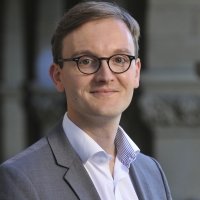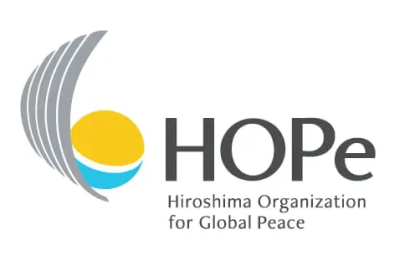Illusionary Visions or Policy Options?
Discontent over Cold War Security Architecture in Europe and the Search for Alternatives
The NPIHP cooperated with the Stresemann Society, Mainz (Germany), and with the Universities of Mainz and Würzburg to organize the ‘Stresemann Workshop’, an academic workshop on international history that was held from 5 to 8 July 2015 at the State Chancellery of Rhineland-Palatinate, Mainz. The research focus was on ideas, concepts and policies to establish alternatives to the structures of Cold War security architecture in Europe, including concepts to overcome the bipolar Cold War system and, at the sub-systemic level, concepts of alternative security policies regarding key states in this system. The workshop was generously sponsored by the State Chancellery of Rhineland Palatinate, by the Representation of Rhineland Palatinate in Berlin and at the EU in Brussels, by the Johannes Gutenberg University of Mainz, by the University of Mainz’ friends association and by the Private Funds of Peter E. Eckes.
Following the workshop-style method, panelists submitted papers in advance and gave brief presentations which were followed by comments of senior experts and plenary discussions. Doctorate students and post-doctorate experts from Italy, France, Romania, the UK, Hungary, Belgium, India, Germany and the U.S. presented their research by making use of new archival and documentary evidence to assess the general research question: How can we appraise the historical chances of success of alternative security concepts which put pressure on the bipolar security architecture of the Cold War in Europe? Considering the profound impact of the legacies and structures of this security architecture beyond 1989/1990, the Cold War’s political order and bipolar stability were understood as being rather constantly in flux or even challenged instead of being static. Specifically, the panelists appraised which forms of discontent over Cold War security architecture in Europe can be detected, which policy-relevant alternative security concepts were identified historically, how they were evaluated by relevant agents, whether governments began implementing such concepts and what their relative importance had been.
The workshop and the individual panels were distinguished by their coherence to address the research agenda. Papers elaborated on a wide range of case studies and issues: on Franco-British divergences over maintaining or overcoming the Cold War order during the Berlin crisis; on French attempts to make use of the CSCE as an instrument of East-West convergence; on the non-implementation of the idea to establish a Nuclear Weapon Free Zone in the Balkans and on Yugoslav attempts to foster nuclear cooperation within the Non-Aligned Movement; on the transformative period of the late 1960s regarding the triangle Washington-Paris-Bonn and its potentials to transcend the Cold War order; on tendencies to construct structures of Western European security cooperation in the 1970s and early 1980s, particularly with regards to Franco-German cooperation; on the impact of SALT on security architecture; on alternative paths in national (nuclear) strategies, including the modernization of the UK strategic deterrent and the TRIDENT D5 upgrade in the early 1980s, the attempts of the Reagan administration to pave the way towards global zero and strategic missile defense, and the implications of missile-based strategy in an hypothetical post-nuclear age; another core theme of the workshop was West Germany’s position and role in the Cold War, West Germany’s development aid policy as a potential vehicle for East-West cooperation, Bonn’s role in the genesis of NATO’s dual track decision of 1979 including the reemergence of the German question and the question whether the concept of middle power politics can be applied to West Germany; a paper on terminology, concepts and ideas of international security policy from a non-Western, constructivist perspective completed the workshop by recalling that language powerfully forms realities.
The workshop provided valuable insight why particular obstacles and limitations including structural barriers like the state of anarchy in the international system, distrust among states and domestic rivalry detained attempts or ongoing policies to implement alternative security concepts on the level of governmental policy. Such concepts appeared sometimes in exposed and sometimes in rather hidden, non-public ways. No comprehensive explanation emerged why such concepts did not get beyond an embryonic degree of political implementation in many cases although the implication was evident that every failure fortified the given structures of the given Cold War security architecture. It became clear at the same time that such concepts had often substantial historical importance, even if they were not implemented. They could unfold a powerful intellectual impact on the Cold War system in the long run, as a kind of injection into this system that worked to transform it; the Gaullist concept and the idea to establish collective security structures in Europe, for example according to the scheme of Egon Bahr, were identified as such injections, even though the workshop concluded that the question of their long-term impact on the Cold War system requires more empirical research, particularly with regards to the 1980s. On the other hand papers, presentations and debates repeatedly demonstrated that alternative security concepts always served at least as points of reference, as challenges or negative images, that spurred different or even opposing kinds of governmental policy.
The Stresemann Workshop offered a forum for stimulating interdisciplinary exchange among an international group of young scholars and senior experts. Papers, presentations and discussions contributed in an empirically well-founded way to develop answers to the workshop’s research questions and to provide valuable feedback on individual research. Moreover, the workshop stimulated thinking about potential research avenues and ways of future cooperation including further international conferences.
Sunday, 5 July 2015
Check-in Hotels
16:15 Guided Tour through Mainz
19:00 Dinner
Monday, 6 July 2015
9:00-9:15 Get together: Stresemann Hall, State Chancellery
Opening Remarks: Andreas Rödder
9:15-10:30 Panel 1
Chair and Comment: Leopoldo Nuti
Christian E. Rieck/ Angela Abmeier: Cold War Sonderwege. A case study in German Middle Power Politics
Frédéric Gloriant: De Gaulle, Macmillan and the Second Berlin Crisis (1958-1961): The Emergence of two Divergent Visions of the Cold War Bipolar Order
11:15-12:30 Panel 2
Chair and Comment: Frédéric Bozo
Alin Andronache: The Balkan Nuclear-Weapons-Free Zone: Predictable Failure or a Viable Alternative to the Cold-War Security System?
Marko Miljkovic: The “Nuclear” Bargaining: The Case Study of Yugoslavia, 1948-1970
14:00-15:30 Panel 3
Chair and Comment: Andreas Rödder
Björn Grötzner: Status Quo Revisited 1968/69: Rethinking the European Architecture
Harold Mock: Brandt’s European Agenda
Bettina Fettich-Biernath: East Plus West in the South? The Ambitious Wish to Cooperate in Development Aid Beyond Bloc Confrontation. The Example of the Federal Republic of Germany (FRG)
16:00-17:15 Panel 4
Chair and Comment: Bernhard Dietz
Arvid Schors: The SALT Process: Bedrock of or Alternative to the Cold War Security Architecture?
Nicolas Badalassi: The French Vision of the CSCE: The Helsinki Process as an Instrument for East-West Convergence
18:30 Dinner
Tuesday, 7 July 2015
9:00-9:15 Get together: Stresemann Hall, State Chancellery
9:15-10:30 Panel 5
Chair and Comment: Frédéric Bozo
Ilaria Parisi: One must and two alternatives: France’s security policy between the Atlantic and the European options
Andreas Lutsch: A Struggle for Alternatives? West Germany and the Genesis of NATO’s Dual Track Decision (1976-1979)
11:00-12:15 Panel 6
Chair and Comment: Peter Hoeres
Stephan Kieninger: Abolishing Nuclear Weapons or Maintaining Them? Ronald Reagan, Margaret Thatcher and their Clashes over the Strategic Defense Initiative, 1983-1988
Suzanne Doyle: Time to get out of the nuclear game? The British Government, the Reagan administration and the Trident D5 upgrade
Joint activity
Rheingau: Rüdesheim - Assmannshausen - Eltville
Wednesday, 8 July 2015
9:15-9:30 Get together: Stresemann Hall, State Chancellery
9:30-10:45 Panel 7
Chair and Comment: Leopoldo Nuti
Christine M. Leah: Missile Strategy in a Post-Nuclear Age
Smita Singh: Re-imagining and Deconstructing Global Security Architecture
11:15-12:15 Concluding Discussion
Participants
Prof. Dr. Frédéric Bozo, Université Sorbonne Nouvelle Paris 3
Dr. Bernhard Dietz, Johannes Gutenberg-University Mainz
Prof. Dr. Peter Hoeres, Julius-Maximilians-University Würzburg
Prof. Dr. Leopoldo Nuti, Università degli studi Roma III
Prof. Dr. Andreas Rödder, Johannes Gutenberg-University Mainz
Angela Abmeier, German Federal Archives, Koblenz
Alin Andronache PhD, Alexandru Ioan Cuza University, Iasi, Romania
Dr. Nicolas Badalassi, Université de Bretagne-Sud
Suzanne Doyle, University of East Anglia
Bettina Fettich-Biernath, University of Nuremberg-Erlangen
Dr. Frédéric Gloriant, Université Sorbonne Nouvelle Paris 3
Björn Grötzner, University of Potsdam
Dr. Stephan Kieninger, German Federal Archives, Koblenz
Dr. Christine M. Leah, Yale University
Andreas Lutsch, University of Würzburg
Marko Miljkovic, Central European University, Budapest
Harold Mock, University of Virginia
Ilaria Parisi, Université Sorbonne Nouvelle Paris 3
Christian E. Rieck, Global Governance Institute, Brussels & Berlin
Arvid Schors, University of Freiburg
Bastian Matteo Scianna, London School of Economics
Smita Singh, Jawaharlal Nehru University, New Dehli




